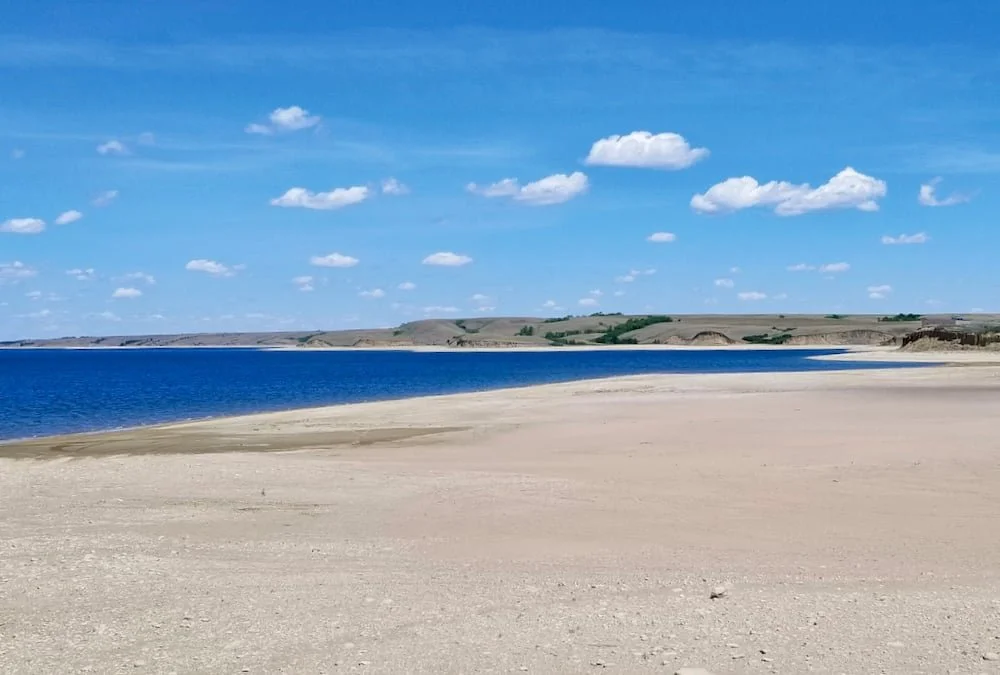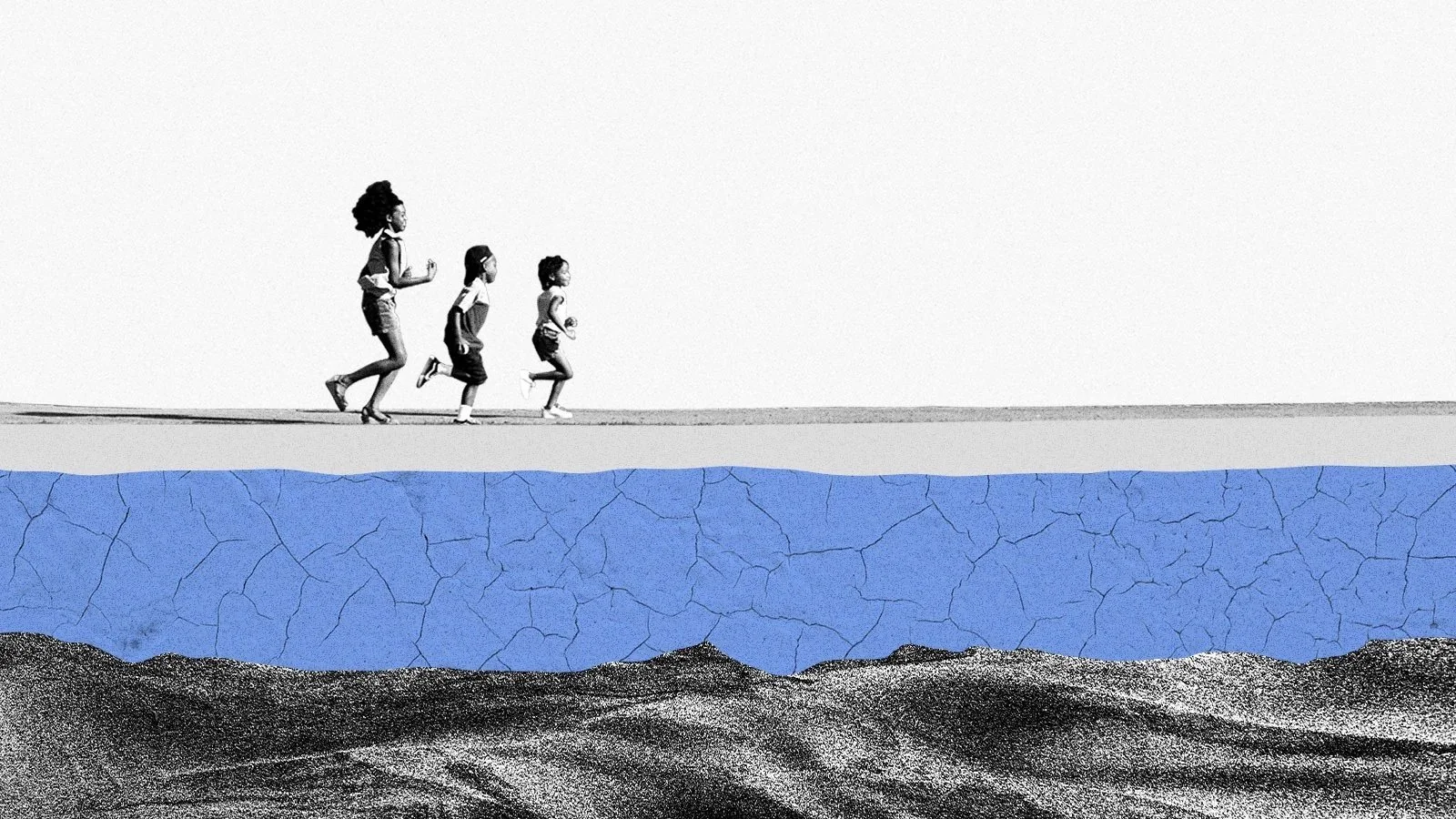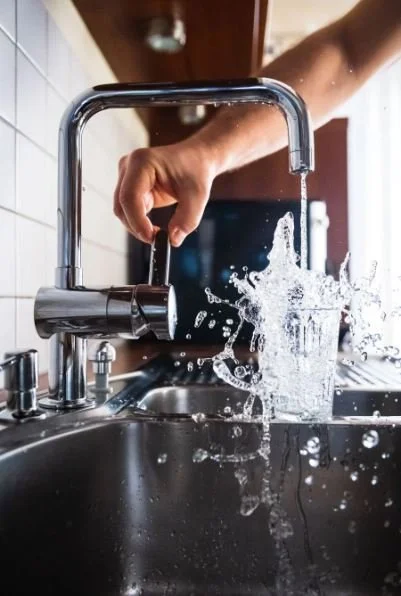In July, three years after Cowichan Valley farmer Katy Ehrlich applied to get her farm's well licensed, provincial officials visited her farm. "They had an order with them that said that we had to stop diverting groundwater for commercial purposes. And we were like shocked," said Ehrlich, who had thought everything was fine with her application for a non-domestic groundwater licence, a requirement under the B.C. Water Sustainability Act (WSA).
New irrigation research helping Island farmers save their crops — and water
New research being spearheaded out of P.E.I. is helping Island farmers make better decisions around when to irrigate their crops — and some say it could not come at a better time. Researchers at Agriculture and Agri-Food Canada have been working on a formula to calculate when to irrigate and how much water to use. The result is a new, online irrigation calculator that's accessible to farmers.
Dwindling water supply leaves some southern Alberta farmers dry
The Bolduc family has been farming and ranching near Stavely, Alta., for generations and this year will be remembered for its scorching heat, lack of rain, parched fields, reduced yields and water restrictions. It's something their family and many others have seen before, but it doesn't make it any easier as they look to harvest whatever they can from their barley, alfalfa and corn fields.
'The saving grace for agriculture': Farmers look to irrigation amid climate woes
Sean Stanford's wheat farm just south of Lethbridge, Alta. falls within the far left corner of Palliser's Triangle — an expanse of prairie grassland encompassing much of southeast Alberta, a swath of southern Saskatchewan, and the southwest corner of Manitoba. The area is named for explorer Capt. John Palliser, who in 1857, famously declared the entire region a wasteland — so hot and arid that no crops would ever grow.
Canadian Prairies farmers try to adapt to a warming world
Most canola crops are grown without requiring irrigation in the Prairies, the nation's agricultural heartland spanning nearly 1.8 million square kilometers (695,000 square miles). But the region is sensitive to droughts, whose frequency and severity have been steadily increasing. In this region, explains Phillip Harder, a hydrology researcher at the University of Saskatchewan, in Saskatoon, "crop production relies on water that accumulates throughout the year." In other words, snow that accumulates over winter and soaks into the ground during the spring thaw. But howling winds over fields that stretch as far as the eye can see have been blowing away much of that snow of late.
LNID’s farmers nearly out of water and hope for their crops this season
Before the 2023 water season, the Main Headworks Canal, located in the Lethbridge Northern Irrigation District (LNID), was shut off so Alberta Agriculture and Irrigation could repair a liner that had been leaking for a few years. The district said when it was turned on in late-April, construction-related leaks were discovered extending the shutdown indefinitely, leaving farmers with just a fraction of their normal irrigation. They are now being told that the Keho Reservoir is also running low.
Sunshine Coast stress on the rise as temperatures heat up, water shortage threat looms again Social Sharing
Sunshine Coast brothers Gord and Geoff Sloan wrestle a 9,000-litre water tank — the size of a small car — into position behind a rural home in Sechelt, B.C., until the empty metal cavern tips into place with a resounding boom. The new owner of this massive metal tank hopes rain will fill it with enough to supply months of water for plants. The brothers' year-old business, RainCatchers, is booming as more hot, dry weather arrives after a parched spring in a region dogged by drought for the past few years.
The world’s largest lakes are shrinking dramatically and scientists say they have figured out why
More than half of the world’s largest lakes and reservoirs have lost significant amounts of water over the last three decades, according to a new study, which pins the blame largely on climate change and excessive water use. Roughly one-quarter of the world’s population lives in the basin of a drying lake, according to the study by a team of international scientists, published Thursday in the journal Science.
After early heat, experts say Prairies to face climate challenges in season ahead
Much of Alberta and Saskatchewan relies on water from melting snow in the Rocky Mountains for replenishment of waterways in the summer. But John Pomeroy — director of the University of Saskatchewan's Coldwater Laboratory in Canmore, Alta. — told CBC that this past winter provided one of the lowest snowpacks he's seen. The snow also melted about six weeks earlier than anticipated, fuelled by the unseasonably warm weather.
Are the reservoir dog days ending?
In 1967, when the Gardiner Dam backed up the South Saskatchewan River to create the 200-km-long Lake Diefenbaker in the middle of Saskatchewan, the plan was to irrigate 500,000 parched acres. To this day, the giant T-shaped lake — named after Saskatchewan politician and Canada’s 13th Prime Minister, John George Diefenbaker — irrigates only 100,000 to 150,000 acres. “The Dief” is, one might say, an untapped resource, a ’60s-era feat of engineering stuck in vaporization mode. (It is said the lake loses more water to evaporation each year than it gives up for crop watering.)
University of Lethbridge researchers receive funding for potato-focused projects
Researchers at the University of Lethbridge (U of L) have received funding for new work focused on potatoes. Through the Agriculture Funding Consortium, the U of L researchers are getting nearly $250,000 to improve sustainable potato production. They will do this by looking at ways to reduce disease in the field and in storage, and to increase production while minimizing the use of resources.
It’s not just oceans rising. It’s groundwater, too
Beneath our feet there is an invisible ocean. Within the cracks of rock slabs, sand and soil, this water sinks, swells and flows — sometimes just a few feet under the surface, sometimes 30,000 feet below. This system of groundwater provides a vital supply for drinking and irrigation, and feeds into rivers, lakes, and wetlands. Across the globe, it contains 100 times as much fresh water than all the world’s rivers and lakes combined.
Kelowna has some of the best tap water in the world
Of course Kelowna residents take their water for granted. It's plentiful, clean and cheap. And, as such, we tend to let it flow freely from the tap with hardly a second thought. "Yes, Canadians use a lot of water per capita," said City of Kelowna utility services manager Kevin Van Vliet. "And, in the Okanagan, we're some of the biggest per capita users in Canada because of the irrigation used for agriculture in our hot, dry climate."
France eyes 'unprecedented' water curbs after driest winter since 1959
France is preparing to introduce restrictions on water use in parts of the country from March, in an unprecedented move for the time of year following the driest winter in 64 years, environment minister Christophe Bechu said on Wednesday. France has recorded 32 days without rain, weather forecaster Meteo-France said. Watering and irrigation is already restricted in 87 municipalities in the south, which usually happens in summer, not winter, and meetings with officials on Friday and Monday will look at extending this, Bechu said.
Spanish farmers protest against plans to curb water supply for irrigation
Thousands of farmers protested in Madrid on Wednesday over Spain's plan to reduce the amount of water taken from the Tagus river to irrigate agricultural land in the country's southeast. Spain experienced its hottest year on record in 2022. The heat, accompanied by a long drought throughout most of the year, caused reservoirs to fall to critical levels. Environment Minister Teresa Ribera said on Tuesday the curbs were necessary to prepare the country for the effects of climate change.
Potential expansion of irrigation in east-central Alberta could be ‘a boon,’ says area reeve
The Alberta government is partnering with the Municipal District of Acadia, the Special Areas board and the Canada Infrastructure Bank to continue planning a large-scale irrigation project for east-central Alberta. A total of $7 million is being invested in a two-year study that will explore the feasibility of the project, which proposes to increase water storage by pumping water from the Red Deer River into new reservoirs.
Water Ways (WWT.V) secures smart irrigation order in Ontario
Water Ways Technologies (WWT.V), a Toronto, Ontario-based company developer of advanced irrigation and water systems with subsidiaries in Israel, China and Canada, announced today that it’s Canadian subsidiary, Heartnut Grove WWT Inc (HGWWT), has received a second order to design and construct a complete smart irrigation and fertigation project for an existing customer.
'This is a legacy thing': Irrigation could be the solution to Niagara's surprising water-scarcity problem
Pipelines could be coming down the pike as a coalition of farmers, industry experts, and local politicians are attempting to construct an irrigation network across Niagara to stave off the worsening effects of climate change. Finding a solution to water scarcity has become more and more pressing as climate change has led to an increase in droughts across the Niagara region.
Are the Great Lakes in danger?
Canadians are proud of the Great Lakes, and for good reason—they supply two large countries with a lot of fresh drinking water, support irrigation and other agricultural activities, and are crucial in shipping and transportation in the area. Plus, they’re great for sailing, swimming and watching the sunset. “Lakes are great indicators of what’s going on in the watershed,” says Sapna Sharma, an associate aquatic ecology and limnology professor at York University. “They give a good idea of what environmental degradation may be happening on land.”
Column: Adaptation requires diving into water challenges, not drowning in denial
I’ve heard on more than one occasion someone “dad joke” about denial not just being a river in Egypt. Online you’ll find this quote attributed, without further detail, to Mark Twain. However, the earliest evidence of its use, according to Quote Investigator, was in a 1933 U.S. newspaper – 23 years after Twain died. It’s interesting, though not surprising, how the unverified attribution presented as fact is clearly more prevalent on the Internet.





















